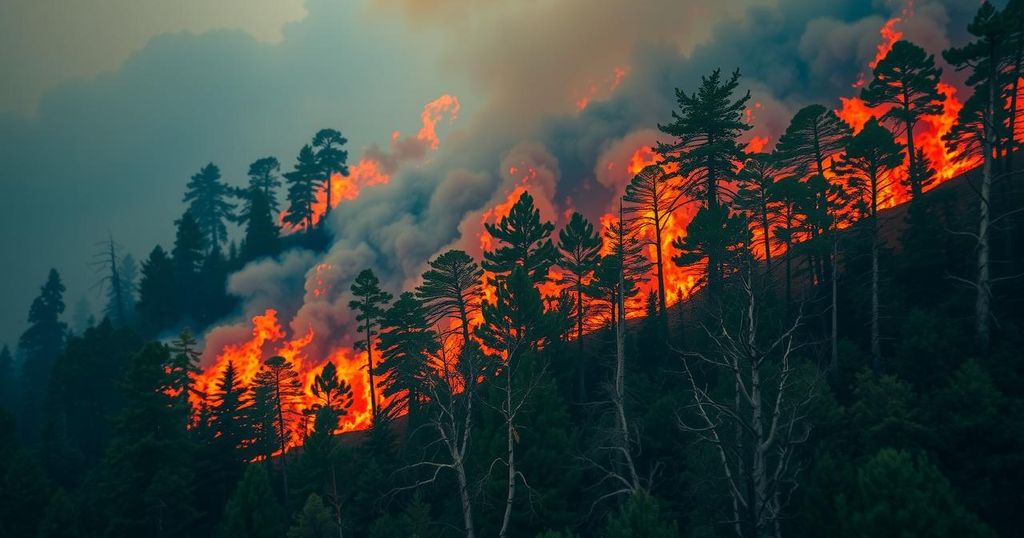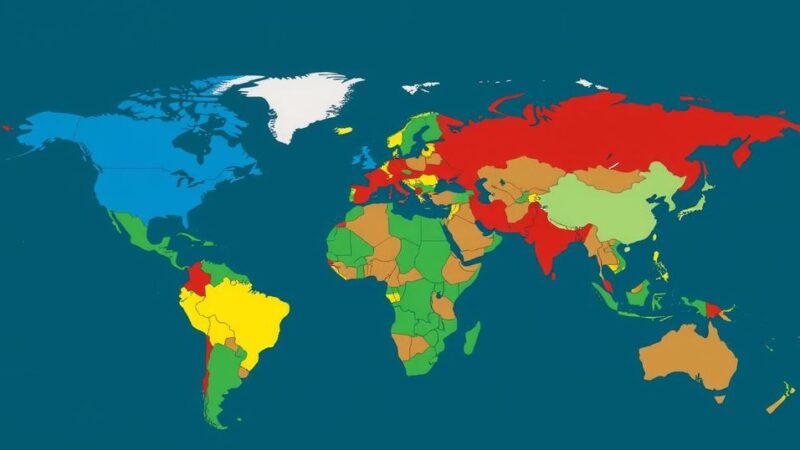Climate change has intensified the frequency and severity of forest fires, with studies showing a 16% increase in burned areas from 2003 to 2019. Increased air pollution from these fires has led to a rise in health-related issues, with fire-related deaths attributed to air pollution increasing from 46,400 annually in the 1960s to 98,750 in the 2010s, underscoring the urgent public health threat posed by climate change.
Recent studies have highlighted the significant impact of climate change on forest fire occurrences and the associated health risks. Increased temperatures and prolonged drought conditions have heightened the frequency and severity of wildfires globally, resulting in extensive environmental destruction and increased air pollution, which poses a serious health threat to populations. A study in the scientific journal Nature Climate Change, involving the ETH Zurich, indicated that from 2003 to 2019, the area affected by forest fires grew by almost 16% compared to a scenario that did not consider climate change. Regions such as Australia, South America, western North America, and Siberia have been especially hard hit. While the overall area burned has decreased by 19% due to agricultural expansion and urban development, the study found that climate change exacerbates the conditions that lead to more substantial forest fires. Co-author Chantelle Burton from the UK Met Office Hadley Centre stated, “Our study shows that once fires occur, the impact of climate change becomes increasingly significant with drier and warmer weather conditions.” Furthermore, a second study led by Chae Yeon Park from the Japanese National Institute of Industrial Technology investigated the health implications of fires, detailing how smoke and fine particulate matter can penetrate the lungs, leading to respiratory ailments. The research revealed a stark increase in mortality related to fire-induced air pollution, rising from approximately 46,400 deaths annually in the 1960s to about 98,750 in the 2010s. In the 2010s alone, over 12,500 deaths annually were attributed to air pollution from fire related to climate change, with regions like South America, Australia, and Europe experiencing the most significant impacts. Park emphasized, “Our research makes it clear that climate change increasingly poses a threat to public health, as smoke is also affecting densely populated areas more frequently.” It is worth noting, however, that there are anomalies; some areas, such as South Asia, have experienced a decrease in fire-related deaths due to increased humidity, which curtails fire outbreaks. The studies conducted were epidemiological, focusing on the correlation between particulate matter pollution and health outcomes, while acknowledging that these findings provide statistical estimates rather than definitive causal relationships.
The interplay of climate change and its effects on natural disasters such as forest fires is a critical concern today. Rising global temperatures and altered precipitation patterns have led to significant ecological changes that not only threaten biodiversity but also human health. The increase in forest fire incidences correlates with adverse health outcomes primarily due to airborne pollutants generated from these fires. Understanding the dynamics between climate-driven fires and public health is crucial for policy-making and mitigating the impacts of climate change on vulnerable populations.
The studies reviewed illustrate the dire consequences of climate change on forest fire trends and public health. With clear evidence linking climate factors to increased incidences of forest fires and consequent health risks due to air pollution, it is imperative for policymakers to enact sustainable practices and climate resilience strategies to protect both the environment and human health.
Original Source: www.swissinfo.ch






